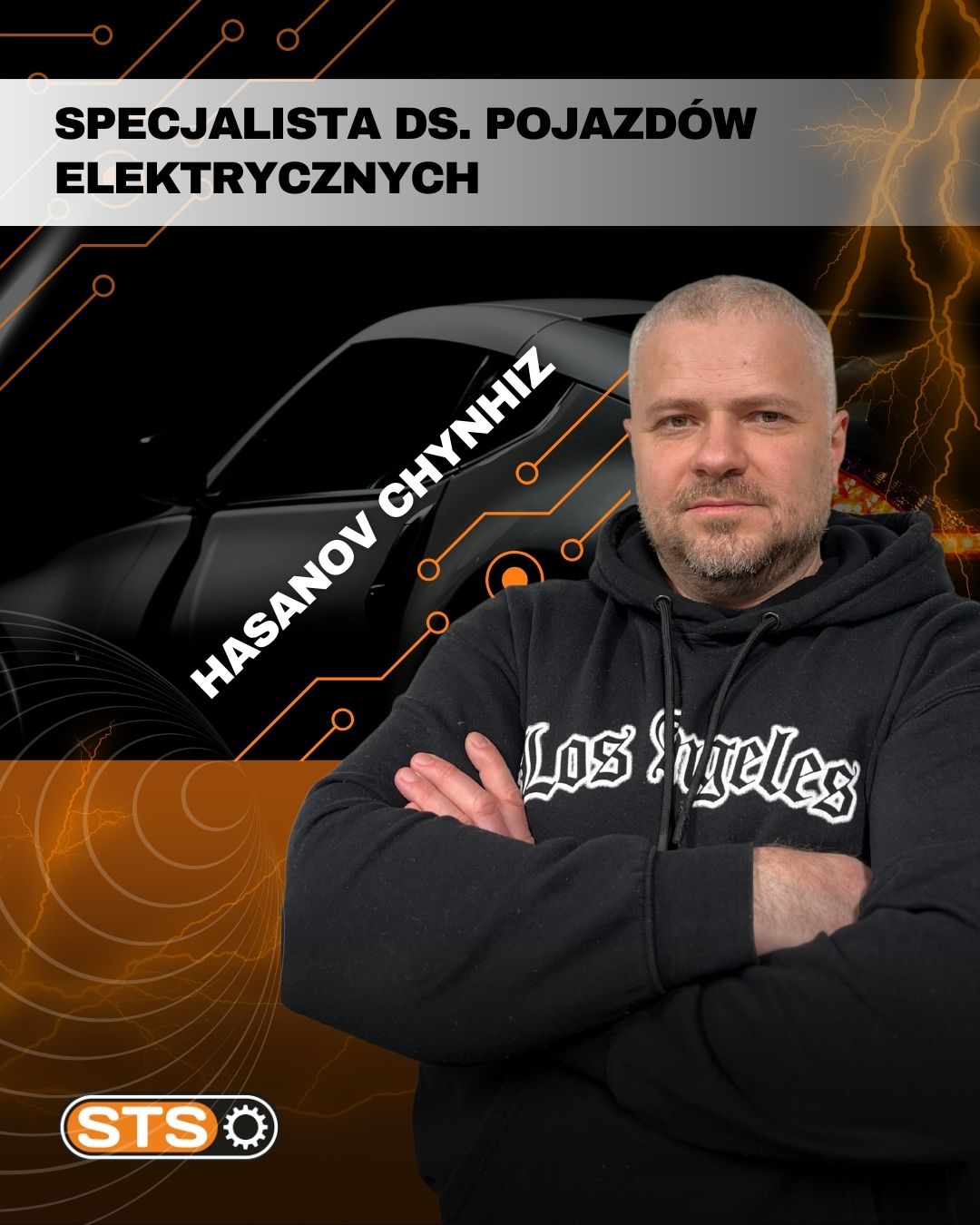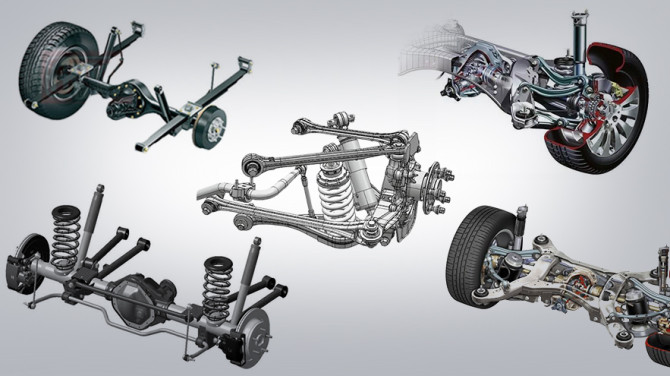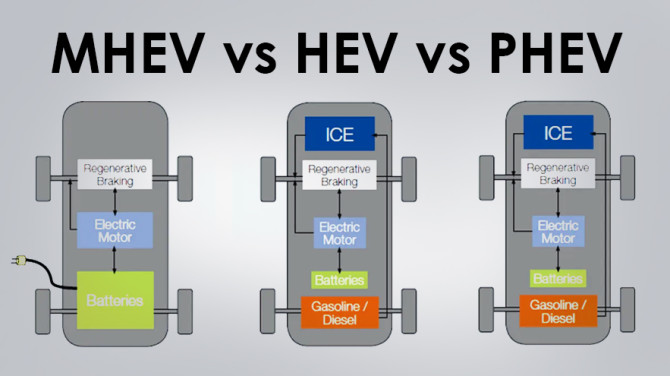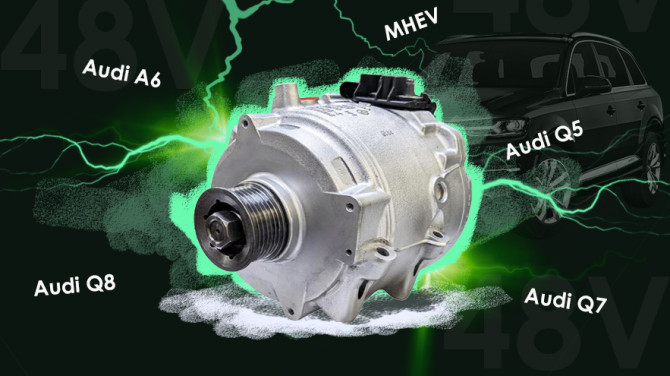Is it worth buying a used hybrid
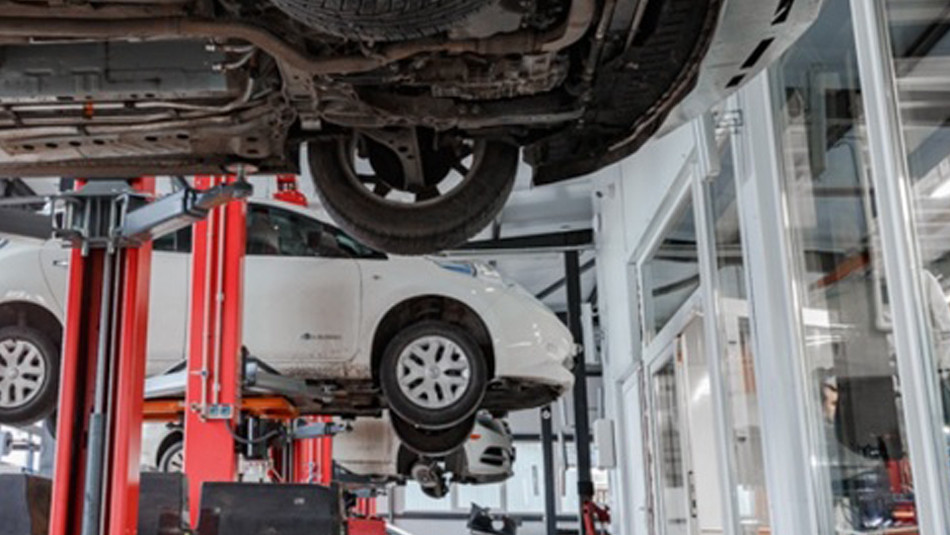
The automotive world is rapidly changing, and more and more people are turning their attention to hybrid models as an alternative not only to gasoline or diesel cars, but also to electric cars, because they combine the advantages of all types of vehicles and, at first glance, have fewer disadvantages. With new cars, everything is clear—if anything happens, the owner is covered by the warranty. But is it worth buying a used hybrid? The answer to this question requires careful analysis. First, you need to figure out how to do everything right: how to buy a used hybrid car, what to look for, and where and how to have it checked out before buying.
What does the secondary market for hybrid cars look like?
The secondary market for hybrids is growing rapidly. More and more drivers in Europe, the US, and Ukraine are selling their hybrid cars, often with the aim of switching to fully electric vehicles. In Eastern Europe, particularly in Poland, hybrids are popular among those seeking a balance between economy, environmental friendliness, and convenience. Models from Japan and the US are particularly in demand, as they have proven to be reliable and durable.
Types of hybrid cars, their pros and cons
There are several types of hybrids, here are the main ones:
- Full-hybrid (FHEV or HEV, full hybrid)
Can run on both electricity and an internal combustion engine, but is charged only by the internal combustion engine or through energy recovery (no charging port).
➕ Fuel efficiency, especially in the city
➖ More expensive to repair - Plug-in hybrid (PHEV, rechargeable hybrid)
Has a larger battery that can be charged from a power outlet. ➕ Can travel dozens of kilometers without a drop of gasoline ➖ Dependence on charging, more complicated service - Mild hybrid (MHEV)
Uses an electric motor only as an auxiliary power source for starting or accelerating. ➕ Hybrid system integrated into existing car model
➖ Cannot run on electricity alone
Fundamental differences between used hybrids and used electric vehicles
The main difference is the presence of an internal combustion engine (ICE) as a second (parallel) source of energy. Hybrids do not have the same range issues as electric vehicles. They also require less charging station infrastructure. However, hybrids have more components than EVs, which means more potential points of failure.
Popular hybrid models on the secondary market
Here are a few models that are commonly found on the market and are considered reliable:
- Toyota Prius — a true legend among hybrids. Reliable, economical, with a rich history.
- Honda Insight — a less popular but interesting option with good design and fuel economy.
- Ford Fusion Hybrid — a spacious sedan, convenient for families.
- Toyota Camry Hybrid — a comfortable business class with hybrid features.
- Hyundai Ioniq Hybrid — modern style and good dynamics.
What to look for when choosing
Buying a used hybrid requires a little more attention than a regular car.
Step one: has the hybrid car been in an accident (collision)?
It is important to check the body for repairs, especially around the battery or electrical system components. Even a minor accident could damage sensitive components in these areas. For example, an impact to the left side of a Toyota Prius could be critical, as the inverter and PDM unit are located there.
You need to be especially careful to find out whether the hybrid you are buying has been flooded. In hybrids, the battery is located high up, so even slight flooding (e.g., a deep puddle), although not critical for the battery, will be dangerous for the electrical wiring and control units. The consequences of complete or partial flooding may be incompatible with the life of the car.
Step two: check the car's history
Use Carfax, AutoCheck, or other services to find out if the car has been flooded, used as a taxi, or has a rolled-back odometer, as well as a lot of other useful information: for example, whether the car has undergone all the service campaigns scheduled by the manufacturer. To check this, you will need to know the car's VIN number, so ask the owner for it before buying.
Step three: battery diagnostics
The battery is the heart of a hybrid. You can start checking it remotely by finding out the manufacturer's battery warranty period. As a rule, it lasts eight years.
When inspecting the car, it is worth checking the battery under load and making sure there are no sudden jumps in the battery charge indicator: from fully charged to a sharp drop in charge. This is the first sign of a malfunctioning VBB.
Next, on some cars (for example, Toyota), you can use built-in tests, as well as check the condition of the high-voltage battery using special equipment available at a specialized service station. STS Electro uses the MS800 test bench manufactured by its own brand, MSG Equipment. This equipment is designed specifically for diagnosing high-voltage nickel-metal hydride batteries in Toyota, Lexus, and Honda hybrids. It can diagnose or restore up to 36 battery modules (cells) simultaneously.
Step four: cooling system
Hybrids have separate cooling circuits for the electronics and the battery. Clogging or failure can lead to overheating and expensive repairs.
This primarily concerns the circulation pump of the inverter cooling system. It is important to diagnose its condition before purchasing and find out when the pump was last replaced. If it has not been replaced at all and the hybrid has mileage exceeding 120,000 km, there is a risk of failure of the internal combustion engine or inverter.
In addition, it is worth checking:
- The level and condition of the coolant and when it was last replaced (antifreeze is designed to last 3-4 years).
- The operation of the heater. The supply of warm air should not be disrupted.
- The condition of the cooling system pipes. They should not have any tears or cracks.
What else to look for
The above points are the main guidelines for inspection. In addition to them, it is also a good idea to check some other aspects of the hybrid car's operation, namely:
Why you should be wary of corporate hybrids and taxis
Such cars often have high mileage and may have been operated without proper maintenance. Even if everything looks fine on the outside, the internal systems may be critically worn. Be especially wary of “fresh” hybrids with excessively low prices.
You can try to obtain information from the seller or by using the services of local independent experts. You can also find visual evidence such as scratches from magnetic roof racks or stickers on the side of the car.
Diagnostics before purchase
The best solution is to contact a service center that specializes in hybrids. They can give you a complete picture of the condition of the battery, inverter, electric motor, generator, and other components. Regular auto repair shops often do not have the necessary equipment.
What is hybrid repair and how much does it cost?
Repairing hybrids can be expensive, especially when it comes to high-voltage systems. However, a market has already formed in Europe for service centers that specialize in hybrids. In Warsaw, this is STS.Electro, a company with many years of experience in servicing and repairing electric and hybrid cars.
Battery restoration
The cost of repairing a high-voltage battery depends on its type and car brand. Prices for diagnostics at STS start at PLN 450, and repairs start at PLN 2,000. We use professional equipment manufactured by our own brand, and we also assemble HVBs from new modules using factory technology.
Electric motor repair
Although electric vehicle manufacturers try to avoid this process by offering complete replacement of units in the event of failure, the repair of electric motors, as well as gearboxes, inverters, and other electrical equipment, is not a problem for true professionals. Prices for hybrid car diagnostics at STS start at PLN 450.
Repair of a 48 V starter-generator on MILD hybrids
MILD hybrids have a special component — a starter-generator. It is also recommended to replace them with new or contract parts. However, STS has developed and successfully uses its own method for repairing these problematic components. To speed up repairs, we can even install high-quality refurbished starters/generators from our own exchange fund.
- CVT automatic transmission. These units are very prone to failure, especially if the car has been driven aggressively or used extensively in the city.
- Electric air conditioning compressor. In hybrids, this unit is responsible not only for comfort in the cabin, but also for cooling the battery.
- Brake Booster of the braking system. Their malfunction is a common problem with many hybrid cars.
- Brake calipers and discs. Due to constant regenerative braking, their guides are rarely used, so they often seize up and fail.
- Catalytic converter. It is often cut out by criminals.
